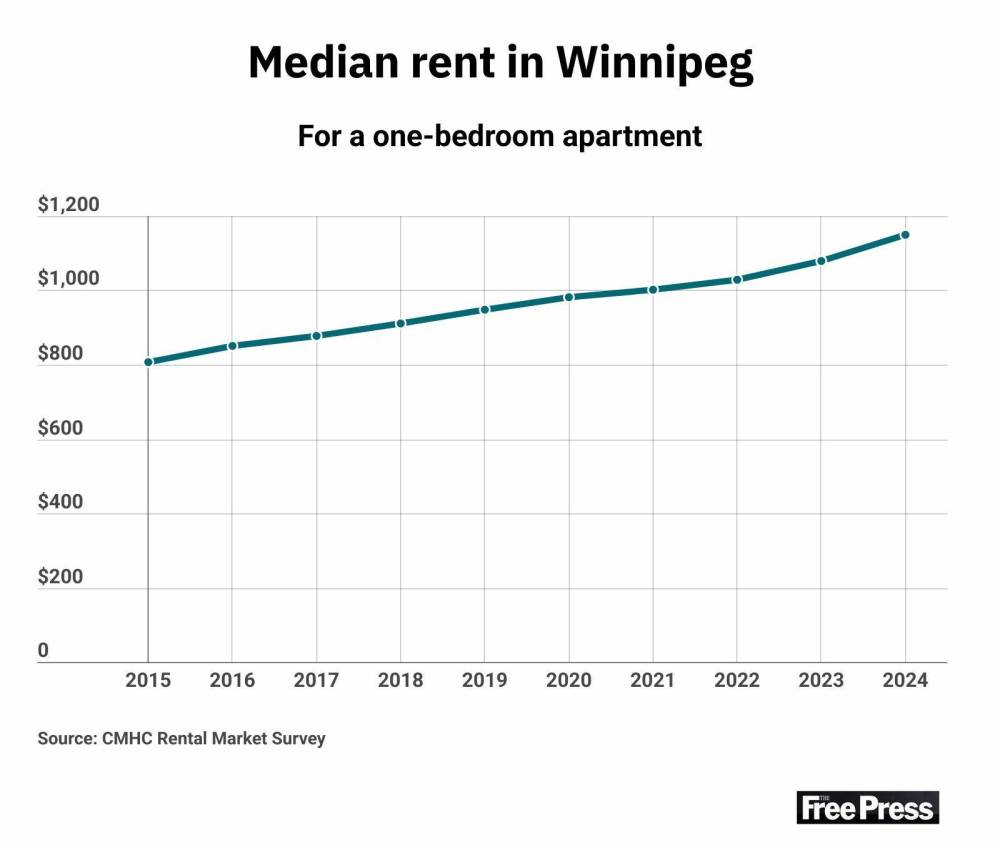Reverse changes to two-tier Rent Assist: prof who helped design program
Advertisement
Read this article for free:
or
Already have an account? Log in here »
To continue reading, please subscribe:
Monthly Digital Subscription
$0 for the first 4 weeks*
- Enjoy unlimited reading on winnipegfreepress.com
- Read the E-Edition, our digital replica newspaper
- Access News Break, our award-winning app
- Play interactive puzzles
*No charge for 4 weeks then price increases to the regular rate of $19.95 plus GST every four weeks. Offer available to new and qualified returning subscribers only. Cancel any time.
Monthly Digital Subscription
$4.99/week*
- Enjoy unlimited reading on winnipegfreepress.com
- Read the E-Edition, our digital replica newspaper
- Access News Break, our award-winning app
- Play interactive puzzles
*Billed as $19.95 plus GST every four weeks. Cancel any time.
To continue reading, please subscribe:
Add Free Press access to your Brandon Sun subscription for only an additional
$1 for the first 4 weeks*
*Your next subscription payment will increase by $1.00 and you will be charged $16.99 plus GST for four weeks. After four weeks, your payment will increase to $23.99 plus GST every four weeks.
Read unlimited articles for free today:
or
Already have an account? Log in here »
One of the designers of Manitoba’s Rent Assist program a decade ago says changes made under the former Tories need to be reversed in order for the NDP government’s homelessness strategy to work.
The program was set up by then-NDP premier Greg Selinger in 2014 to support people transitioning from “welfare to work,” while also increasing benefits for those who rely on government supports for their income, said University of Manitoba economics and labour studies associate professor Jesse Hajer.
In the years since, changes to the program have seen benefits clawed back, which has made it more difficult for low-income Manitobans to make ends meet, Hajer said.
RUTH BONNEVILLE / FREE PRESS FILES University of Manitoba economics and labour studies associate professor Jesse Hajer says changes made to Manitoba’s Rent Assist program under the former Tories need to be reversed in order for the NDP government’s homelessness strategy to work.
In a report released Thursday for the Canadian Centre for Policy Alternatives, Hajer, who was a senior project manager with the planning and priorities committee of cabinet secretariat while Selinger was in power, noted the Rent Assist shortcomings will make it difficult for the NDP to meet its goal of ending chronic homelessness by 2031.
The report calls on the province to reverse changes to Rent Assist made by the previous Progressive Conservative government that discriminated “between the ‘deserving’ and ‘undeserving’ poor, by introducing higher benefits for those not” on social assistance.
“Rent Assist is an important benefit with a wide reach in Manitoba,” Hajer said in an interview. “Low-income Manitobans have been hurt the most by high inflation in recent years, including rapidly increasing rents.”
Manitoba’s Your Way Home strategy, unveiled in January, relies on moving people from encampments into social housing, while moving those in social housing into the private market. If those being moved out of social housing cannot afford private market rent, the strategy risks housing some while creating homelessness for others, the report says.
When Brian Pallister’s Tories came into power after the 2016 election, they increased the proportion of net income that people were expected to pay towards rent to 30 per cent from 25 per cent.
A few years later, after calls for a Rent Assist increase, the province increased the percentage of median market rent to which Rent Assist was indexed to 77 per cent for those on social assistance and 80 per cent for low-income workers, essentially creating a two-tier program.
Hajer said reversing those cuts and returning to a model where maximum benefits are the same for all eligible Rent Assist recipients would help a large amount of people quickly.
In Winnipeg, the median rent for a one-bedroom apartment has increased 35 per cent over the last decade, the Canada Mortgage and Housing Corporation Rental Market Survey shows.
“Until a massive amount of new social housing is built,” programs like Rent Assist are needed to keep the housing affordability crisis from getting worse, Hajer said.
PC housing, homelessness and addictions critic Carrie Hiebert defended the stance of providing higher benefits to Manitobans not on social assistance.
“We are encouraging independence, resilience and empowerment,” Hiebert said in a statement. “Our goal should always be to encourage a path forward for our families, friends and loved ones to make sure meaningful employment and secure housing are within their reach.”
Housing, Addictions and Homelessness Minister Bernadette Smith was not available for an interview, but a prepared statement provided Friday said: “Our government is investing in social housing, supporting renters, and ensuring Manitobans have safe, affordable, and dignified homes.”
The statement noted the PCs cut Rent Assist while this year’s provincial budget increased the program by $27.8 million.
Hajer’s report said in 2019, under the PCs, Rent Assist cash benefits to Manitoba’s low-income renters increased to $140 million from $100 million, when the program was fully implemented by the NDP in 2016.
The government said Friday that it has restored the renter’s tax credit cut and blamed the PCs for selling off social housing units. (The Tories sold 387 units to for-profit companies, including 374 units at 185 Smith St. for $16.2 million and 13 units at 356 Assiniboine Ave. for $1.45 million).
“Expanding the supply of non-market housing needs to be the priority,” said Right to Housing Coalition member and University of Winnipeg chair of urban and inner-city studies Prof. Shauna MacKinnon.
“Rent assist should not be the default and it should not be expanded in the absence of strong rent regulations,” said MacKinnon. “It is too easy for landlords to increase rates to Rent Assist levels, which we know is happening and especially problematic for the lowest income renters who end up paying ridiculous rents for substandard housing.”
carol.sanders@freepress.mb.ca

Carol Sanders
Legislature reporter
Carol Sanders is a reporter at the Free Press legislature bureau. The former general assignment reporter and copy editor joined the paper in 1997. Read more about Carol.
Every piece of reporting Carol produces is reviewed by an editing team before it is posted online or published in print — part of the Free Press‘s tradition, since 1872, of producing reliable independent journalism. Read more about Free Press’s history and mandate, and learn how our newsroom operates.
Our newsroom depends on a growing audience of readers to power our journalism. If you are not a paid reader, please consider becoming a subscriber.
Our newsroom depends on its audience of readers to power our journalism. Thank you for your support.
History
Updated on Tuesday, August 19, 2025 1:25 PM CDT: Corrects Hajer's former involvement with planning and priorities committee.


